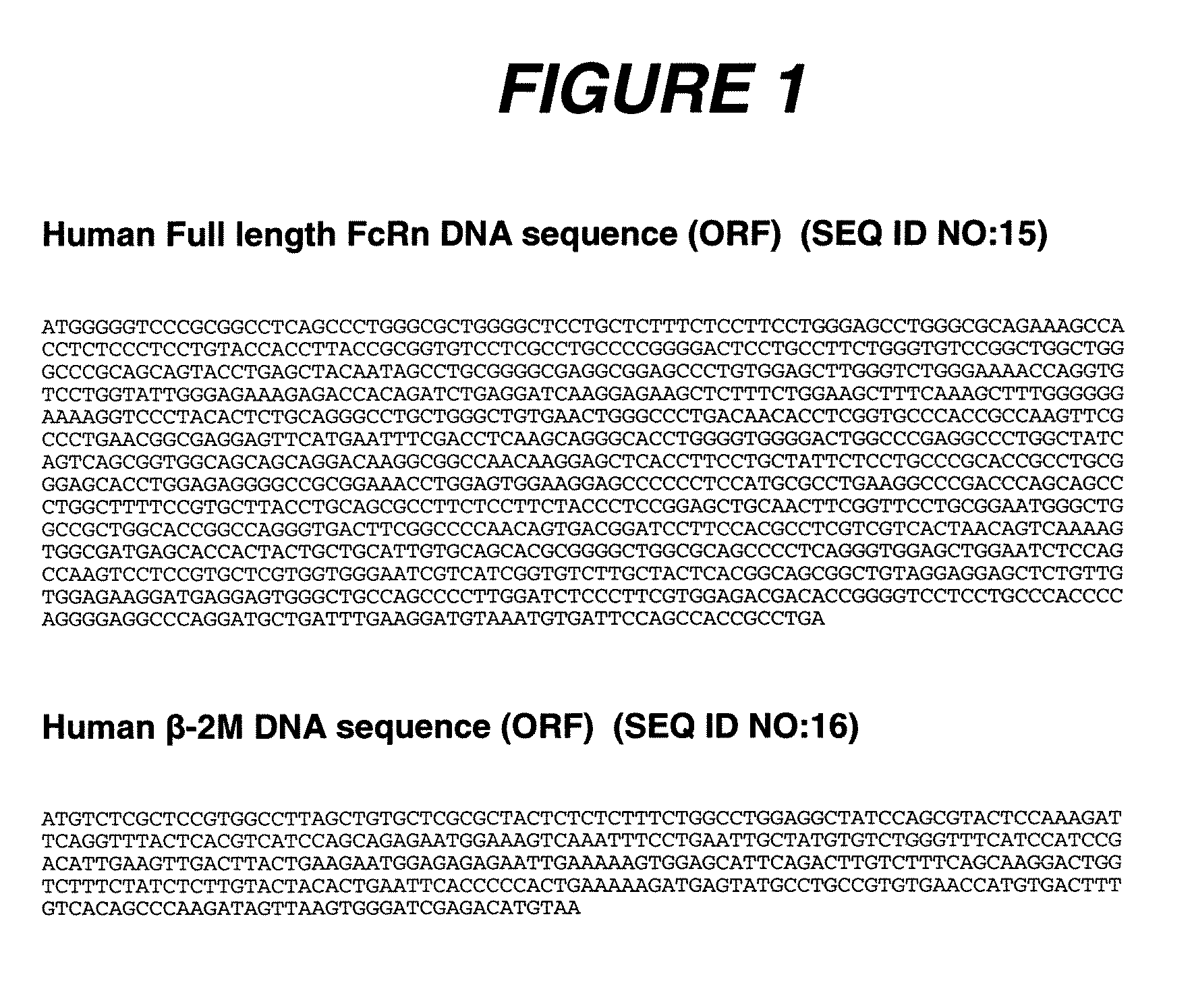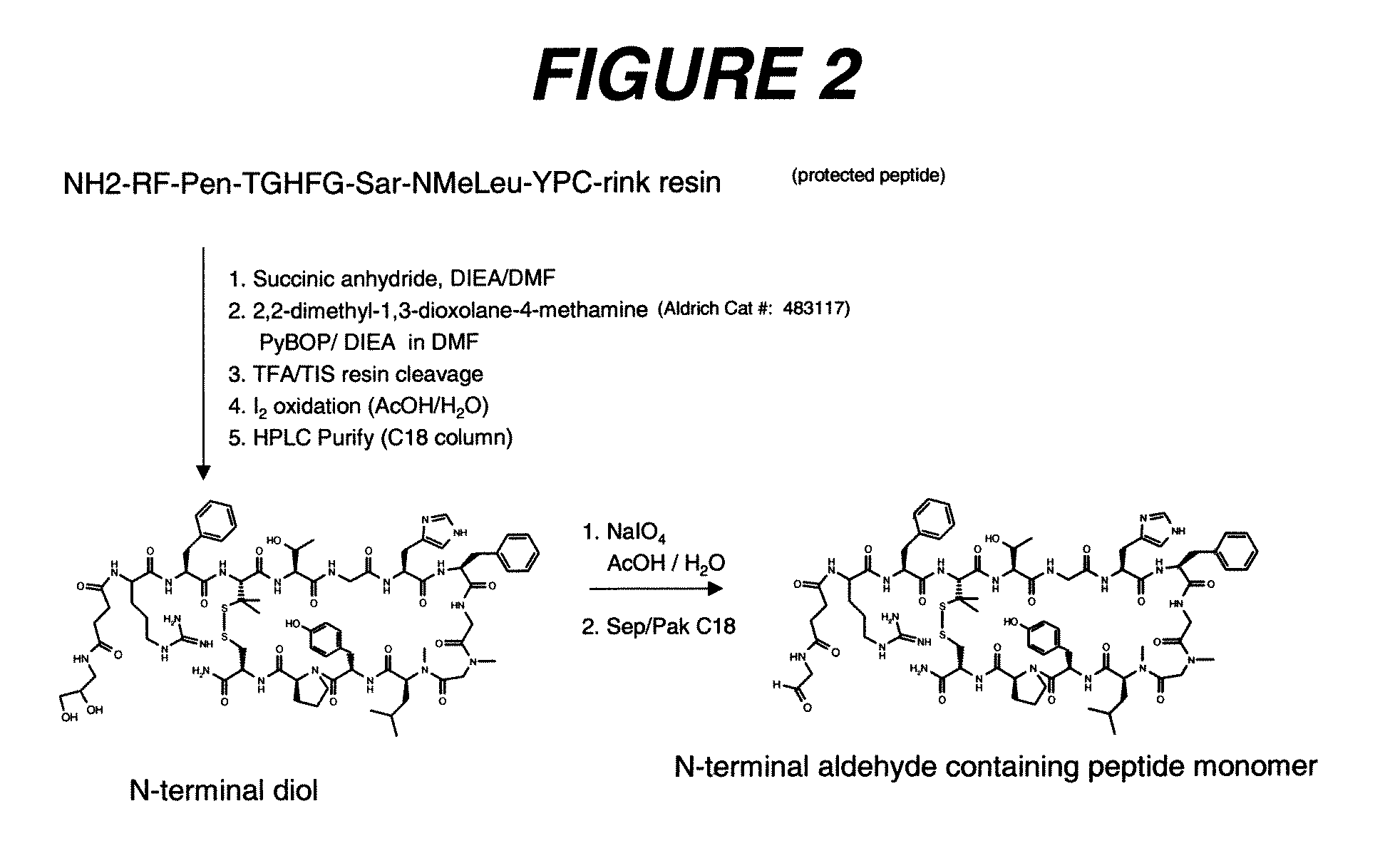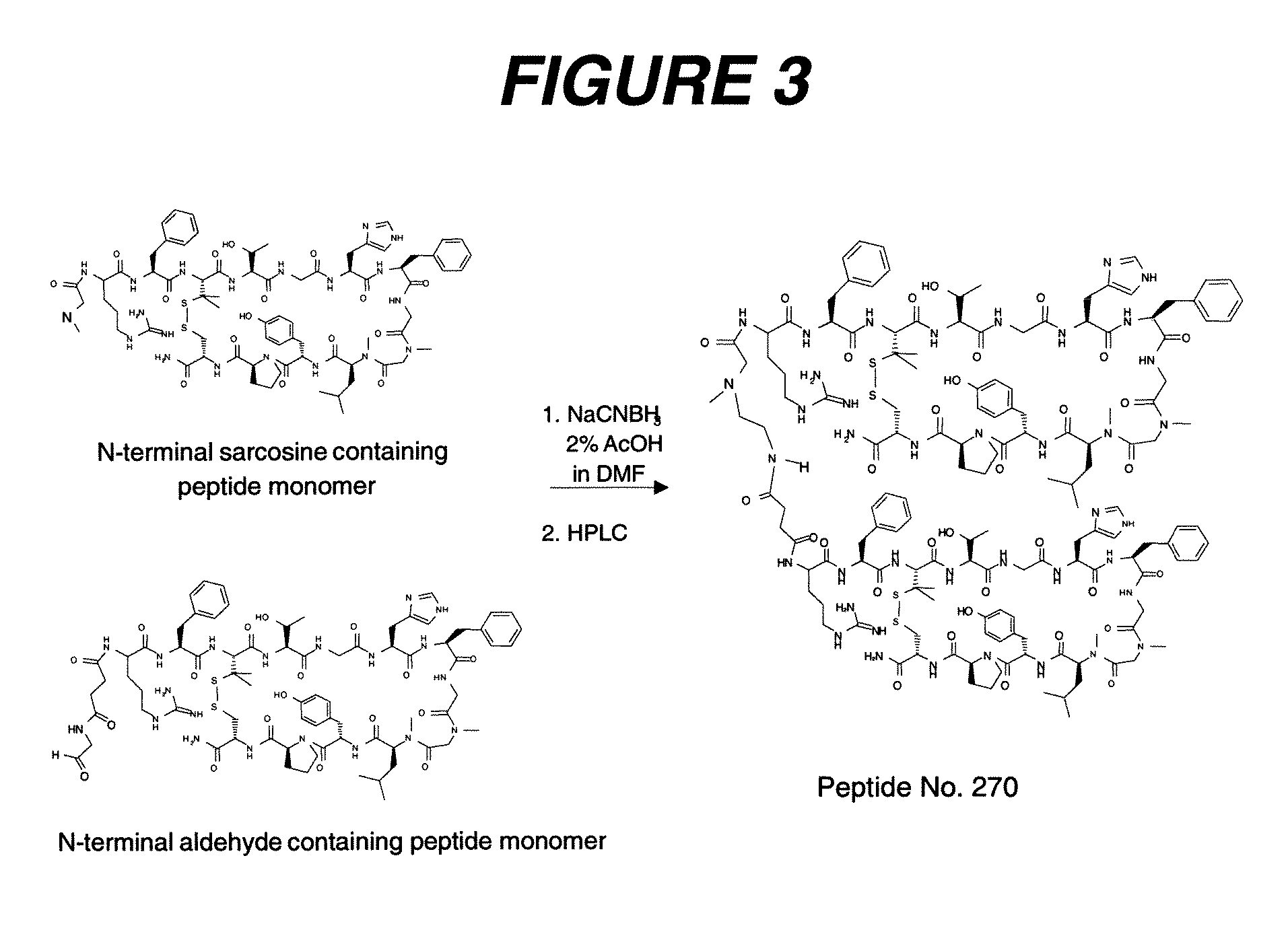Peptides that block the binding of IgG to FcRn
a technology of peptides and igg, applied in the field of peptides, can solve the problems of shortening the half-life of serum igg and not being protected from degradative mechanisms, and achieve the effect of preventing igg from recycling
- Summary
- Abstract
- Description
- Claims
- Application Information
AI Technical Summary
Benefits of technology
Problems solved by technology
Method used
Image
Examples
example 1
Expression of Soluble Human FcRn (shFcRn)
[0296]Soluble human FcRn cDNA was cloned, expressed and purified as described in the literature using the glutamine synthetase expression system in Chinese hamster ovary (CHO) cells See U.S. Pat. No. 5,623,053. A stop codon was placed after amino acid position 274 in the protein sequence of human FcRn in order to remove the transmembrane region.
example 2
Transfection of HEK 293 Cells with Human FcRn
[0297]Human embryonic kidney (HEK) 293 cells (ATCC, Manassas, Va.) were transfected using the SuperFect Transfection Reagent (Qiagen, Valencia, Calif.) according to the manufacturer's recommended protocol. The full length FcRn cDNA construct depicted in FIG. 1 (C. M. Story et al., J. Exp. Med. 180:2377-2381 (1994), N. E. Simister et al., Eur. J. Immunol. 26:1527-1531 (1996)) was originally cloned into pcDNA6 (Invitrogen, Carlsbad, Calif.) as the plasmid vector in order to generate the FcRn expression vector, FcRn:pcDNA6. The Human β2m cDNA construct, also depicted in FIG. 1 was originally cloned into pcDNA3 (Invitrogen) as the plasmid vector to generate the human β2m expression vector, β2m:pcDNA3 (D. Gussow et. al., J. Immunol. 139:3132-3138 (1987)).
[0298]The day before transfection, HEK293 cells were seeded at 0.5-2.5×106 cells per 100 mm dish and incubated at 37° C. and 5% CO2 for 16 hours in cDMEM. The composition of cDMEM contains: 1 ...
example 3
Screening of Phage Libraries for FcRn-IgG Inhibitors
[0300]Peptides capable of inhibiting the binding of the IgG Fc portion to FcRn were identified by screening filamentous phage display libraries licensed from Dyax Corp. (Cambridge, Mass.). More specifically, the following three libraries were used in combination; TN-9-IV, TN10-X, TN-11-I and TN-12-I were used in the screen. The total number of individual viable phage contained in each library was reflected by the number of transformants established for each library when the libraries were expressed in E. coli and plated at a clonal dilution as described by the Dyax protocol. The number of transformants for TN-9-IV, TN10-X, TN-11-I and TN-12-I was 3.2×109, 2×109, 2.7×109 and 1.4×109, respectively. Another way to refer to the absolute number of viable phages in a given volume is by stating the plaque forming units (pfu) per unit volume.
[0301]A. Buffers Used in Phage Screening
[0302]The following buffers were used for the screening of ...
PUM
 Login to View More
Login to View More Abstract
Description
Claims
Application Information
 Login to View More
Login to View More - R&D
- Intellectual Property
- Life Sciences
- Materials
- Tech Scout
- Unparalleled Data Quality
- Higher Quality Content
- 60% Fewer Hallucinations
Browse by: Latest US Patents, China's latest patents, Technical Efficacy Thesaurus, Application Domain, Technology Topic, Popular Technical Reports.
© 2025 PatSnap. All rights reserved.Legal|Privacy policy|Modern Slavery Act Transparency Statement|Sitemap|About US| Contact US: help@patsnap.com



